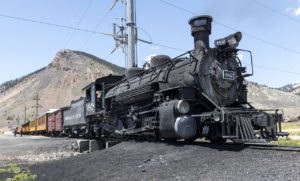Fond Remembrances of the “Greatest Generation”

One concerned a man I used to work with as an associate. Later, he served as the communications contact for several of my freelance assignments.
About 15 years ago, he told me of a visit to Louisville, where we were then living. He had accompanied his aging father to Kentucky for a World War II reunion of the elder’s military buddies.
My friend made two comments that stuck out.
One concerned the obedient nature of the men.
When someone gave an order or outlined the coming events, my friend said, there was no arguing, questioning, or nitpicking. Everybody just fell in line and did as they were told.
The other was their ordinariness.
“Watching these guys, I wondered: ‘How did we win the war?’” he said with a chuckle.
Extraordinary Feats
Some might react to such a comment with a fit of pique, but it was offered in a spirit of respect and admiration.
I knew what he meant. As the son of a World War II vet myself, I still marvel at the extraordinary feat of defeating Germany and Japan. Our victory came at the hands of ordinary men and women.
My father didn’t see action at Normandy. His fighting overseas came in Italy, where he was wounded in the left leg.
Thanks to the stitches being pulled out too early, he wound up with that leg shorter than the other.
He walked the rest of his life with a limp and a monthly partial disability check from the Veterans Administration.
Responding to Uncle Sam’s call had already interrupted his studies at the University of Minnesota. After returning to the States prior to war’s end for treatment, he completed his last two years and earned a degree in agriculture.
Living with Regrets

Not just the war, but his childhood and how his family survived the harsh realities of the Great Depression.
The one time I did draw him out because of a school assignment, he talked about how he and his brother used to go out and throw stones at the engineers on locomotives.
They hoped the railroad workers would respond by tossing coal back at them—which they could gather up and take home for heat.
My mother lived through similar deprivation.
In fact, she never got over the bad memories associated with Christmas. To her, the holiday meant being lucky to get more than just an apple or an orange in her stocking.
Such harsh circumstances helped steel their character and taught them the meaning of sacrifice, hard work, and frugality.
Those are qualities foreign to many in today’s push-button, all-conveniences world.
“Greatest Generation” True Heroes
One of the many recent Normandy-related comments that caught my attention was from a fellow, hardy member of the “Greatest Generation.”
“We weren’t heroes,” a veteran of the invasion remarked. “I was scared the whole time.”
Of course, that is what makes people like him and my father so great. They answered the call to duty and risked their very lives—and legs—so that we could enjoy the freedom and prosperity that followed.
We all owe them a debt of gratitude. The reason they are heroes is not because they were special, but because they weren’t. And yet, they did something very special. We should never forget that.


